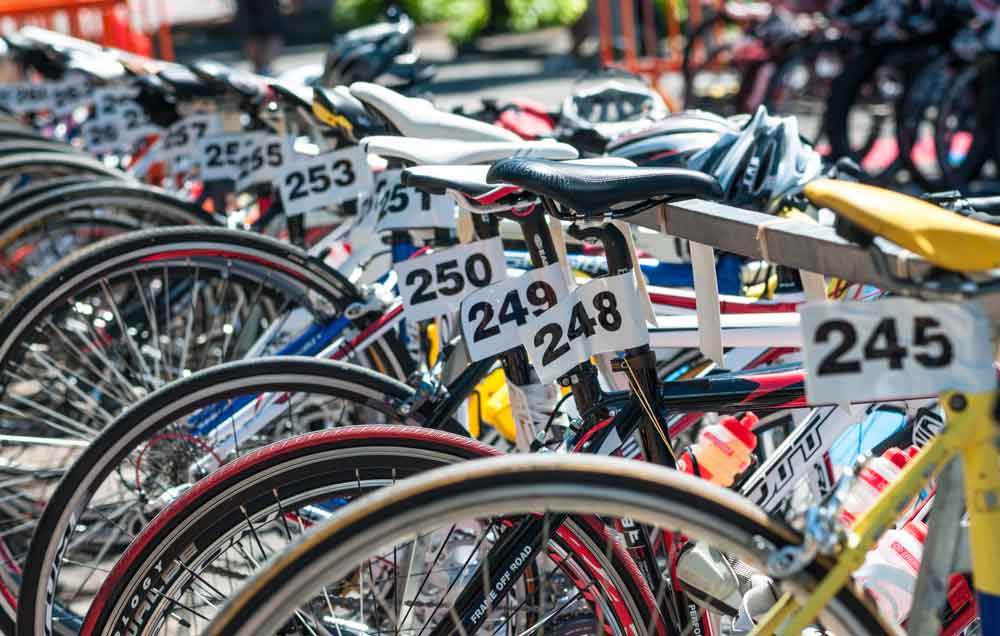Can Your Bib Number Affect Your Performance?

Photo: iStock
No, the number on your race belt shouldn’t impact performance. But it can have unintended, sometimes amusing consequences.
If you’re like most triathletes, you excitedly anticipate the day your bib number is posted online before an upcoming race. Especially for big events, we deconstruct our assigned race numbers for any meaning, as if the sequence is actually some cryptic code that can unlock our triathlon future. We call our training buddies and compare bib assignments, identifying ourselves with the number on the little square of paper that will see us through to the finish line.
“I am 8654.”
But other than giving us a tangible detail for a day full of anxiety-inducing unknowns, your bib number is what you make of it; any perceived connection between that integer and your performance is bunk. “Of course, there is a superstition around two numbers, 13 and 666—pro cyclists will turn 13 upside down and athletes who get 666 probably find it amusing,” says Simon Marshall, the psychologist for the BMC Racing Team. But there’s no science pointing to a performance correlation.
Boston triathlete Kasey Myers was assigned bib number 666 for a race a few years ago and didn’t think twice about it—until she saw the (unamusing) reaction of other racers. “Nobody wanted to rack their bike next to mine, and on the run people passed me like they were afraid to get too close,” she says. For her, it was a minor, “funny at times” distraction that she doesn’t think impacted her ultimate result. Although even a slight distraction can divert energy and attention away from your race effort, Myers’ experience hardly speaks to any mind-body phenomenon.
According to Marshall, there’s a bunch of research on superstition in sport, but “by definition, this involves ritualistic behaviors that are always under the control of the athlete—they are mental comfort blankets—so since race numbers are assigned, they don’t really fit in this area of study,” he says. Since there’s no consistency with bib assignments, it’s tougher to chart any interrelationship with outcome.
Age-grouper Dan Husker offers anecdotal evidence that your bib number does matter. As a police officer in Colorado, he considered it “a good omen” when he was assigned number 911 for his first 70.3. Husker, who races in honor of fallen officers, says he also thought it was a fitting tribute to law enforcement lost on 9/11. In this instance, a random bib number was packed with personal meaning and inspiration, fueling him to a great result.
Pro triathletes face a different reality than age-groupers since their bib numbers are correlated to past results or standings in world rankings. The lower their number, the bigger the target on their back, the more pressure the athlete feels. “A low number is sort of a badge of honor,” Marshall says. The stakes are higher, and that stress can crack even the best athletes.
Age-groupers Myers and Husker are outliers to the typical triathlete’s experience with bib assignments, Marshall says, in that their numbers had any relevance in their race experience (and not necessarily performance-wise). He suggests concentrating on race-day factors you can actually influence.
“We never want to encourage athletes to focus on their race number or give it special meaning because this is never in their control, is unlikely to ever repeat, and is, well, pointless for performance,” Marshall says. Still, nabbing your birthday—or a certain naughty number—is like a gift from the race gods, sure to amuse.